Podcast: Play in new window | Download (Duration: 38:09 — 70.2MB)
Blood is Thicker Than Water
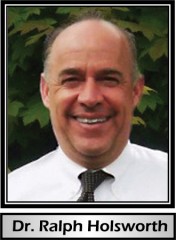
That is the title of a paper written by Dr. Ralph Holsworth back in 2002. This was my first introduction to nattokinase. Here is a link to that paper. I first interviewed Dr. Holsworth in 2007 and I have been interested in this enzyme since that time. I was so impressed by the benefits that I have also added nattokinase to my daily supplement program and I have recommended it to many people. If you have concerns about cardiovascular health you should consider nattokinase. In spite of its name, nattokinase is not a kinase enzyme, but a serine protease of the subtilisin family. It exhibits a strong fibrinolytic activity.
“Nattokinase is a particularly potent treatment because it enhances the body’s natural ability to fight blood clots in several different ways and has many benefits including convenience of oral administration, confirmed efficacy, prolonged effects, cost effectiveness, and can be used preventatively. It is a naturally occurring, food dietary supplement that has demonstrated stability in the gastrointestinal tract. The properties of nattokinase closely resemble those properties of plasmin so it dissolves fibrin directly! More importantly, it also enhances the body’s production of both plasmin and other clot dissolving agents, including urokinase. Nattokinase may actually be superior to conventional clot-dissolving drugs such as urokinase, and streptokinase, which are only effective therapeutically when taken intravenously within 12 hours of a stroke or heart attack. Nattokinase, however, may help prevent the conditions leading to blood clots with an oral daily dose of as little as 2,000 fibrin units (FU).” quote from Nattokinase and Cardiovascular Health, by Dr. Holsworth.
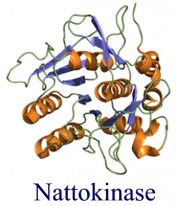 In this interview, Dr. Holsworth will discuss the origins of nattokinase and the emerging science that reveals the benefits. The basic issue here is that fibrin is the factor in our blood that forms blood clots. Too much fibrin thickens the blood increasing one’s risk of cardiovascular disease. Consumption of nattokinase has been shown to enhance fibrinolytic activity leading to reduced fibrin in the blood. Nattokinase has also shown benefits for blood pressure support. Here is an excerpt from Dr. Holsworth’s paper:
In this interview, Dr. Holsworth will discuss the origins of nattokinase and the emerging science that reveals the benefits. The basic issue here is that fibrin is the factor in our blood that forms blood clots. Too much fibrin thickens the blood increasing one’s risk of cardiovascular disease. Consumption of nattokinase has been shown to enhance fibrinolytic activity leading to reduced fibrin in the blood. Nattokinase has also shown benefits for blood pressure support. Here is an excerpt from Dr. Holsworth’s paper:
“Natto, made from fermented soybeans, is a traditional Japanese food. Many people enjoy it for its distinctive flavor, enlivened by the activity of Bacillus subitilis. Natto has a long history, and some have theorized that it may even have a prehistoric origin, possibly circa B. C. It has at least been ascertained that natto has been popular since the Edo period, 400 years ago. Originally, natto was utilized as a folk remedy for heart and vascular diseases, fatigue, and beriberi. In 1980, Dr. Hiroyuki Sumi et al. found that natto contains a potent fibrinolytic enzyme, which they named nattokinase.
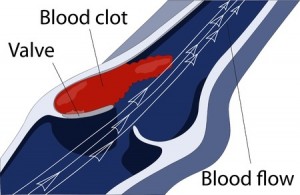 It was confirmed that oral administration of nattokinase (or natto) produced a mild and frequent enhancement of the fibrinolytic activity in the plasma, as indicated by the fibrinolytic parameters, and the production of tissue plasminogen activator. Nattokinase capsules were also administered orally to dogs with experimentally induced thrombosis, and lysis of the thrombi was observed by angiography. It was shown that the oral administration of natto and nattokinase enhance the fibrinolytic activity in plasma.
It was confirmed that oral administration of nattokinase (or natto) produced a mild and frequent enhancement of the fibrinolytic activity in the plasma, as indicated by the fibrinolytic parameters, and the production of tissue plasminogen activator. Nattokinase capsules were also administered orally to dogs with experimentally induced thrombosis, and lysis of the thrombi was observed by angiography. It was shown that the oral administration of natto and nattokinase enhance the fibrinolytic activity in plasma.
Conclusion
Nattokinase may prove to be a defibrinogenating enzyme that drastically decreases blood viscosity. Decreasing blood viscosity strikes at the root of arteriosclerosis and atherosclerosis as well as hypertension, peripheral vascular disease and congestive heart failure. The fibrinolytic activity of nattokinase resolves the active process of atherosclerosis and lyses thrombi. The per oral administration, prolonged half-life of 4-6 hours and extremely safe profile show favorably upon nattokinase as the key.” End excerpt.
![]() Since that original paper was published, nattokinase has become a fairly well-known enzyme and is used as a natural adjunct in cardiovascular care. If you are interested in using nattokinase
Since that original paper was published, nattokinase has become a fairly well-known enzyme and is used as a natural adjunct in cardiovascular care. If you are interested in using nattokinase  purchase your supplement from a well known and well respected manufacturer. Good companies use trademarked, branded and clinically studied ingredients. In this case we are specifically considering Natto NSP-2 from Vesta Ingredients, Inc. Natto NSP-2 is certified nonGMO and Kosher.
purchase your supplement from a well known and well respected manufacturer. Good companies use trademarked, branded and clinically studied ingredients. In this case we are specifically considering Natto NSP-2 from Vesta Ingredients, Inc. Natto NSP-2 is certified nonGMO and Kosher.
Benefits of Natto NSP-2
- Antioxidant Effects
- Improved Circulation
- Decrease in Blood Viscosity
- Improved Cardiovascular Health
If you want to improve your health in the long term you need to stop thinking in terms of disease. Nutrition does not treat disease. Nutrients nourish the body in particular ways. Seek to nourish your body with nutrients that benefit you in a particular way. I consider cardiovascular health to be one of my concerns. I don’t have any problems but I have areas to watch. So I take nutrients to support cardiac health. I take nattokinase, magnesium, Pycnogenol, d-Ribose, aged garlic extract, and fish oil as foundational nutrients that provide structure/function support for my cardiovascular system. Each of these nutrients offer a particular benefits and the benefits are additive. The best nutritional program is the one that works for you. When you take the time to understand more about the supplements you take, the better choices you will make. Better choices lead to better outcomes. This is your process of discovery.
Dr. Ralph E. Holsworth, Jr., DO
Emergency Medicine
Ralph E. Holsworth, Jr. received his Doctor of Osteopathy in 1997. He is a board-certified osteopathic family physician previously serving rural and under-served regions of New Mexico and Colorado . Prior to his medical training, Dr. Holsworth served as environmental scientific consultant with the US EPA and private sector firms providing technical assistance on Superfund site evaluation, remediation and environmental cleanups. He received his Baccalaureate of Science in 1985. In 1977-1981, Dr. Holsworth served in the United States Navy. Dr. Holsworth presently works at the Tahoma Clinic in Renton , Washington with Dr. Jonathan Wright, and treats a wide variety of health conditions, with special interest in cardiovascular conditions (especially problems related to increased blood viscosity), auto-immune problems, diabetes, and environmental illness. With a long-time interest in integrative and functional medicine approaches to traditional medicine. Dr. Holsworth has practiced medicine in a wide variety of settings in both hospital and private clinical practice. Dr. Holsworth has served as honorary professor, Department of Biology, at the University of Colorado at Colorado Springs and is involved in clinical research. He is on the board of the NeuroLipid Research Foundation. He is the Scientific Adviser for Vesta Ingredients.





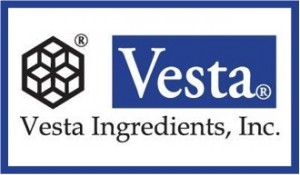

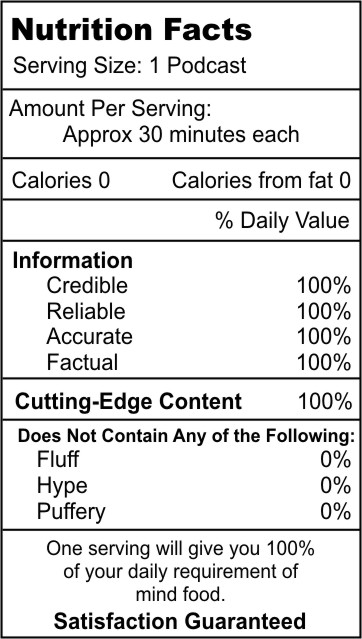




{ 4 comments… read them below or add one }
Hi Dr. Holsworth! I recently had a blood clot in my leg from above my knee to below my knee. After one shot of Lovenox in the hospital, he sent me home with a prescription of Eliquis. I finished one bottle now and would like to switch over to Nattokinease. However, I don’t know how much to take now. Could you please tell me the dosage?
Thank You,
Karen
Dr. Holsworth is not available from this site. You can try to reach him through email at drholsworth@gmail.com. Good luck and best wishes.
Lumbrokinase is a better choice under most circumstances….
We were not examining the benefits of Lumbrokinase. Do you know of any comparative studies with nattokinase and lumbrokinase? I would be interested in any science you could point to that can quantify the benefits of lumbrokinase compared to nattokinase.
{ 1 trackback }